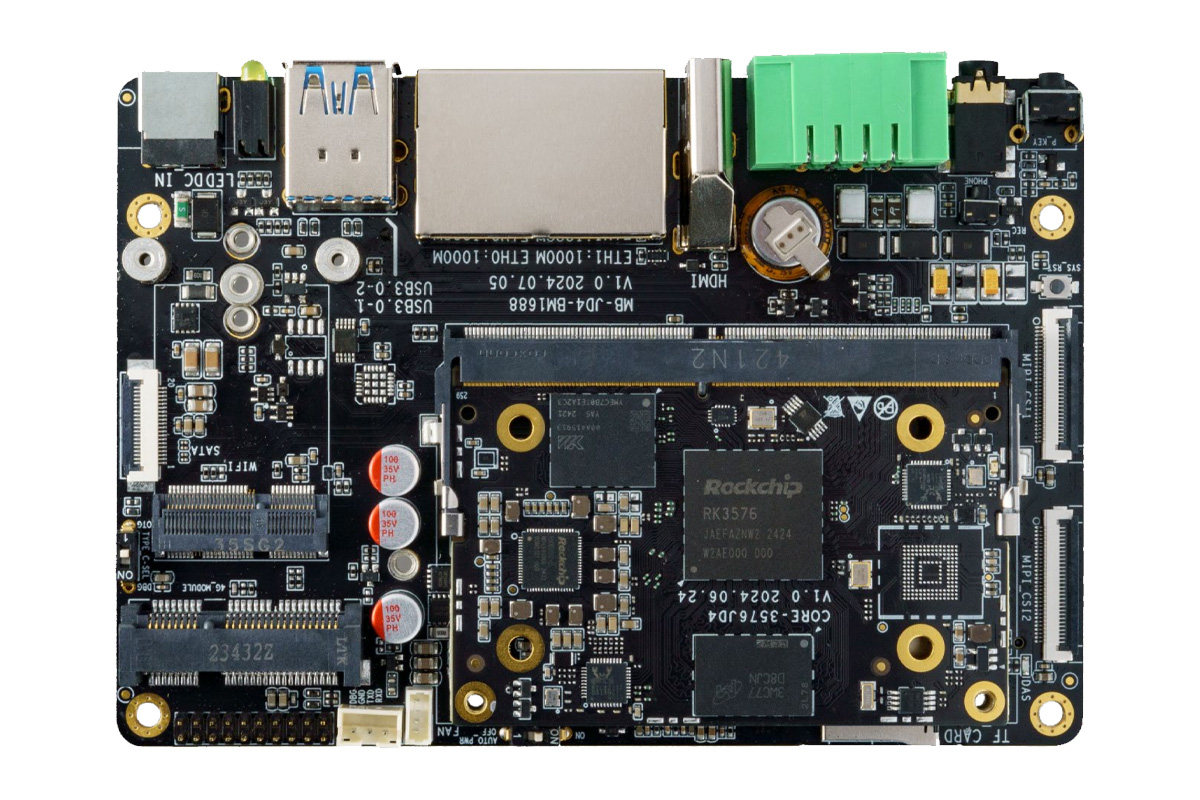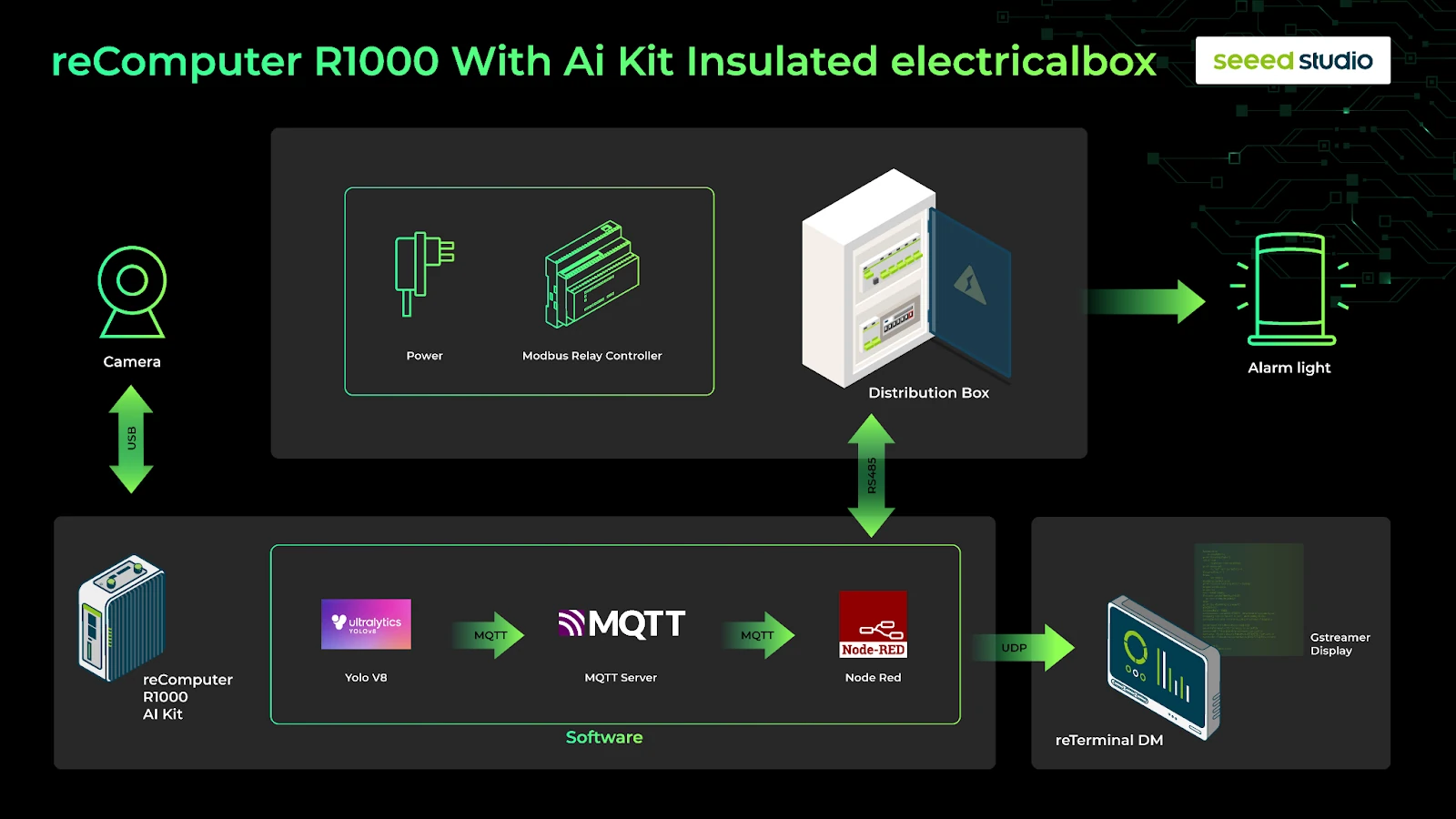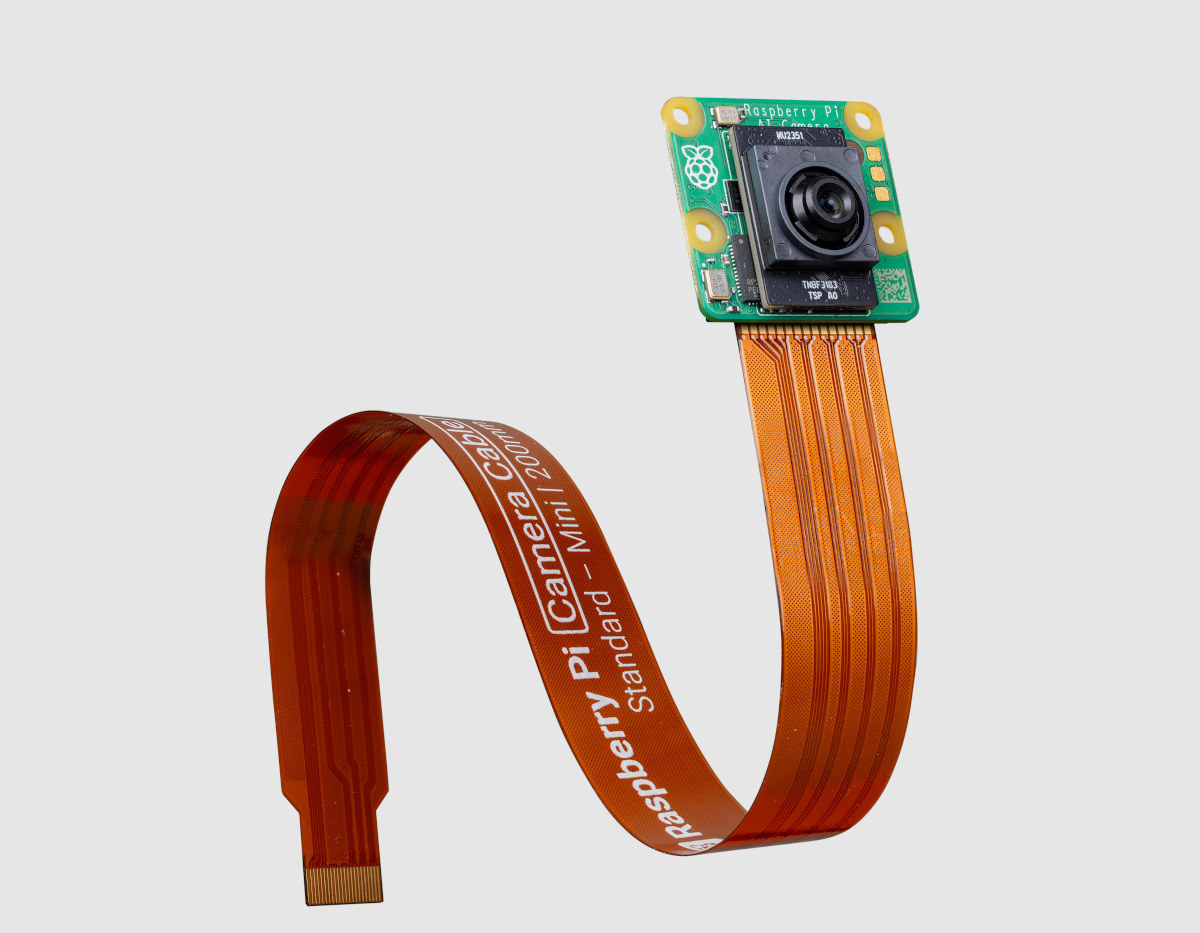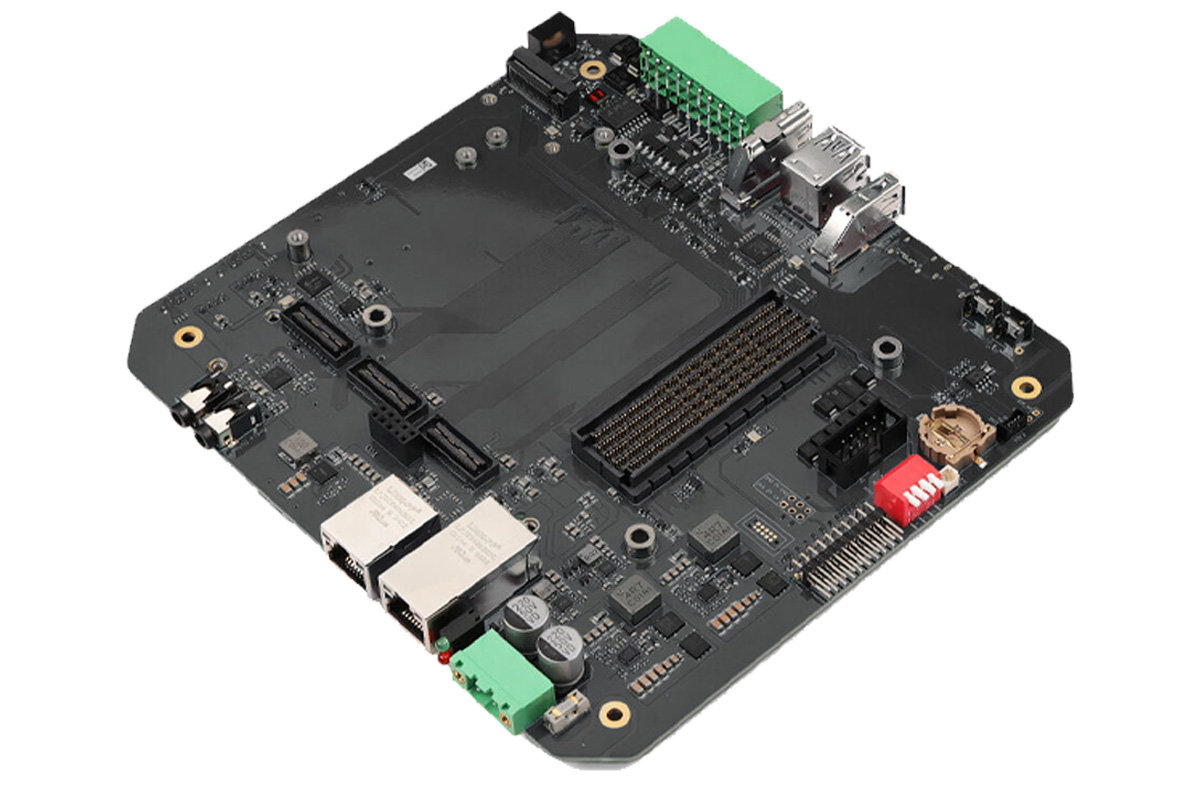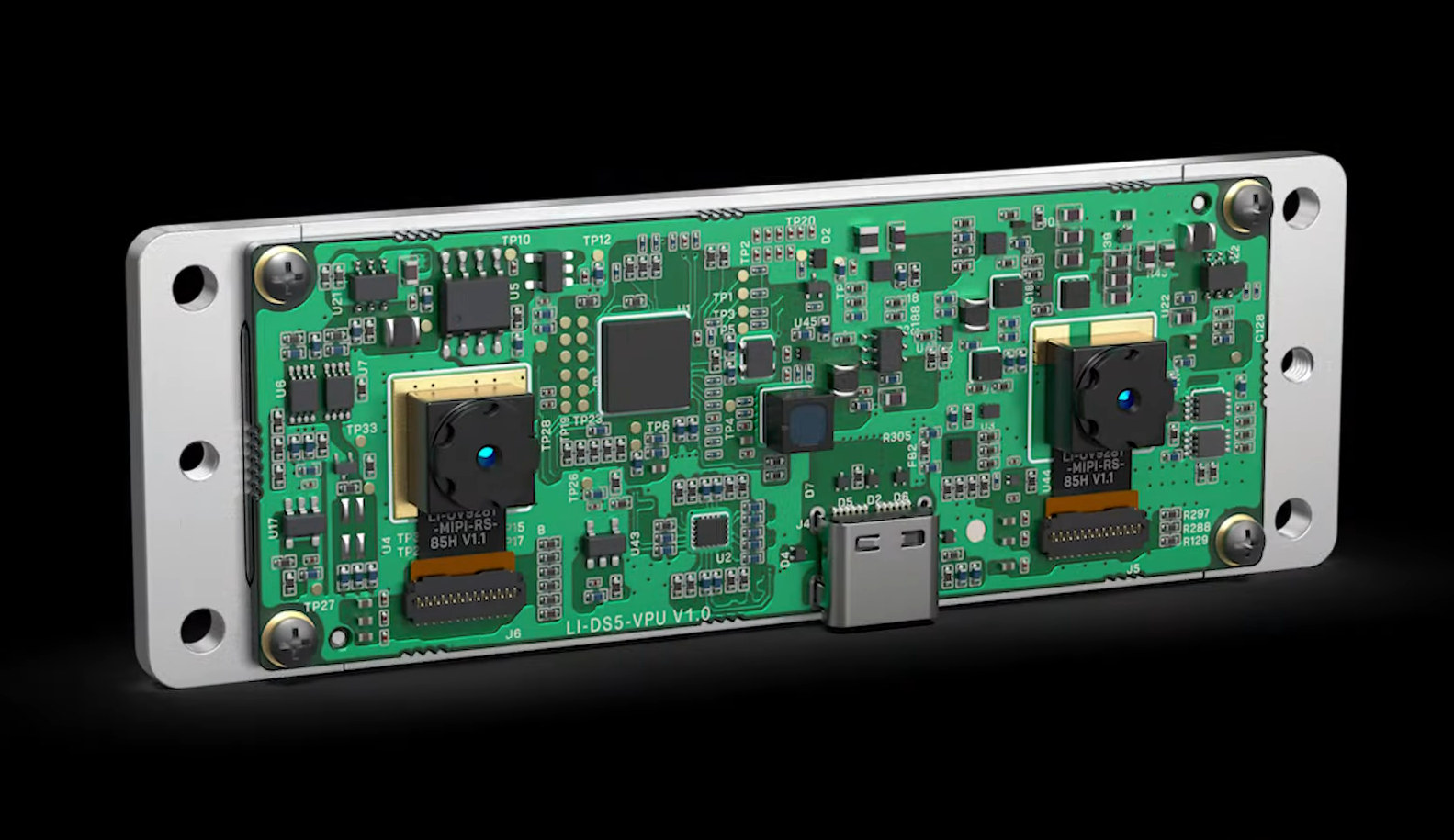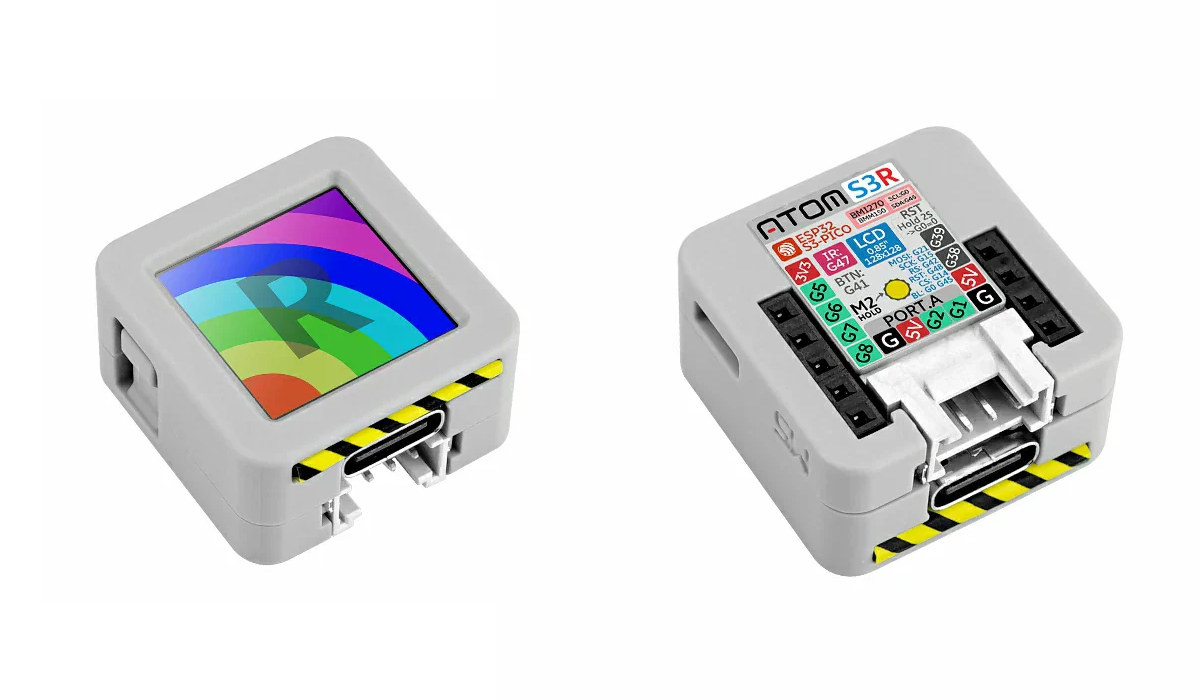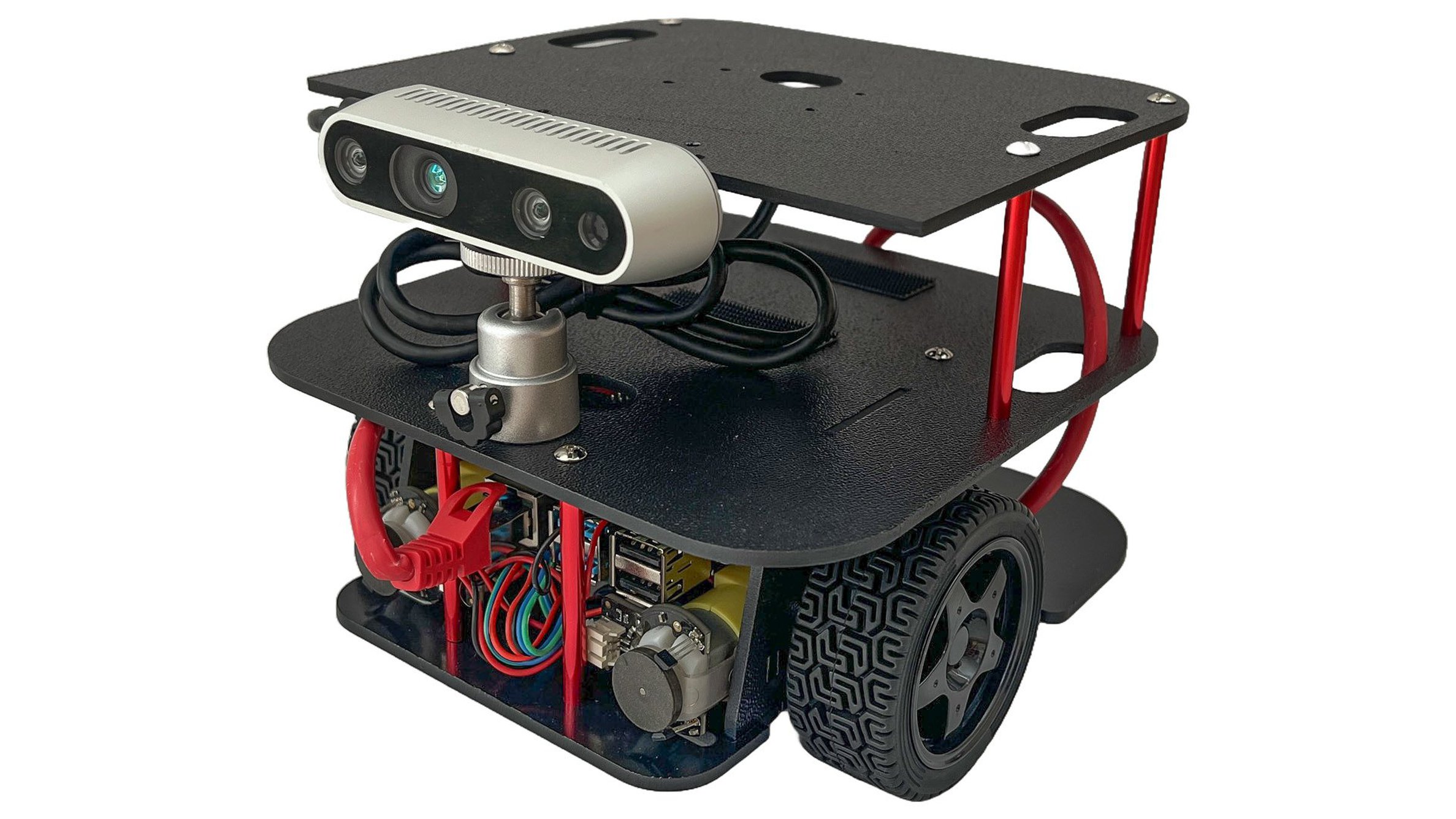Firefly has released a Rockchip RK3576 SoM and development board called the Core-3576JD4 Core Board with a SO-DIMM edge connector and the AIO-3576JD4 carrier board respectively. The core board or the SoM is built around an octa-core 64-bit processor with a Mali G52 MC3 GPU and a 6 TOPS NPU, so it can handle demanding AI tasks while maintaining low power consumption. The AIO-3576JD4 is a full-fledged carrier board with a wide range of on-board interfaces, like dual Gigabit Ethernet ports, MIPI-CSI, HDMI 2.1, USB 3.0, USB 2.0, USB Type-C, a Phoenix connector for serial, dual-row pin headers (SPI, I2C, Line in, and Line out), an M.2 socket for 5G, a mini PCIe for 4G LTE, an M.2 socket for WiFi 6/BT 5.2, and a third M.2 socket for SATA/PCIe NVMe SSD expansion. RK3576 AI SoM and dev board specification Core-3576JD4 specifications SoC – Rockchip RK3576 CPU – Octa-core CPU […]
reComputer R1000 Raspberry Pi CM4-powered IoT Gateway runs open-source software for Edge AI applications (Sponsored)
Seeed Studio is a Raspberry Pi-approved reseller and device designer. In May 2024, Seeed released their first edge IoT Raspberry Pi-powered gateway and controller, reComputer R1000. It is Raspberry Pi CM4-powered, with AI capabilities when equipped with Hailo NPU. It comes with all the necessary features that a robust and reliable industrial edge IoT device needs, along with rich and versatile interfaces like three RS485 ports, dual Ethernet, and flexible IoT wireless communication (4G, LoRa, Wi-Fi/BLE, Zigbee) and essential functional modules (GPS, UPS, TPM2.0, PoE, SSD, etc.). With Modbus and BACnet supported, it’s a perfect fit for remote access control, especially BMS, BAS, and iBMS. You’ll find more technical details in our previous article about the reComputer R1025, and on Seeed Studio’s product page where you can also purchase the AIoT gateway. As a powerful edge IoT controller and gateway with AI capabilities, it embraces the Raspberry Pi community, is […]
Raspberry Pi AI Camera with Sony IMX500 AI sensor and RP2040 MCU launched for $70
We previously noted that Raspberry Pi showcased a Raspberry Pi Zero 2W with a Raspberry Pi AI camera based on a Sony IMX500 intelligent vision sensor at Embedded World 2024, but it was not available at the time. The good news is that the Raspberry Pi AI camera is now available for $70 from your favorite distributor. This follows the launch of the more powerful Raspberry Pi AI Kit designed for the Raspberry Pi 5 with a 13 TOPS Hailo-8L NPU connected through PCIe. The AI camera based on a Sony IMX500 AI camera sensor assisted by a Raspberry Pi RP2040 to handle neural network and firmware management is less powerful, but can still perform many of the same tasks including object detection and body segmentation, and works on any Raspberry Pi board with a MIPI CSI connector, while the AI Kit only works on the latest Pi 5 board. […]
reServer Industrial J501 – An NVIDIA Jetson AGX Orin carrier board with 10GbE, 8K video output, GMSL camera support
Seeed Studio’s reServer Industrial J501, a Jetson AGX Orin carrier board designed for building Edge AI systems. With up to 275 TOPS of exceptional AI performance, this carrier board is designed for advanced robotics and edge AI applications for industrial environments. The carrier board features GbE and 10GbE LAN via RJ45 ports, three USB 3.1 ports, an HDMI 2.1 output, and multiple M.2 slots for expansion, including support for wireless connectivity via the M.2 Key B socket. Additionally, it has support for 8K video decoding and up to 8 GMSL cameras via an optional extension board. reServer Industrial J501 Jetson AGX Orin carrier board specification System-on-Module (one or the other) SoM – NVIDIA Jetson AGX Orin 64GB with CPU – 12-core Arm Cortex-A78AE v8.2 64-bit processor with 3MB L2 + 6MB L3 cache GPU / AI accelerators NVIDIA Ampere architecture with 2048 NVIDIA CUDA cores and 64 Tensor Cores @ […]
Intel RealSense Depth Module D421 offers a low-cost depth-sensing solution at just $80
Intel RealSense Depth Module D421 is an entry-level stereo depth module with a 0.2 to 3-meter recommended range, a global shutter to capture motion without artifacts, and a 75° × 50° field of view (FoV). Intel has made RealSense Depth cameras for years, including the popular RealSense D435i with 6 DoF tracking introduced in 2018 that currently sells for about $320. But not all projects need the most advanced features and/or are viable when needing to spend several hundred dollars on the camera itself. The RealSense Depth Module D421 is a much cheaper way to integrate depth-sensing into projects at a much lower price point. It’s fairly similar to the earlier D435 but lacks an RGB camera. Intel RealSense Depth Module D421 specifications: Based on the Intel D4 Vision Processor Image sensor technology – Global Shutter Recommended Range – 0.2 m to over 3 m (varies with lighting conditions) Depth […]
M5Stack ESP32-S3-Pico-based devkits: ATOMS3R with 0.85-inch color display, and ATOMS3R Cam with VGA camera
M5Stack ATOMS3R and ATOMS3R Cam are two tiny devkits based on ESP32-S3-Pico system-in-package and a similar design but the first one features a 0.85-inch color color IPS display, while the other is equipped with a GC0308 VGA camera. Both modules measure just 24x24mm with a thickness of around 13mm, integrate BMM150 and BMI270 motion sensors, offer GPIO expansion through female headers and a grove connector, and feature an infrared transmitter and a USB Type-C port for power and programming. Those are the second devkits based on the ESP32-S3-Pico SiP after we covered the tiny OMGS3 module earlier this week. M5Stack ATOMS3R with display ATOMS3R specifications: SiP – Espressif ESP32-S3-PICO-1-N8R8 SoC ESP32-S3 dual-core Tensilica LX7 up to 240 MHz with 512KB SRAM, 16 KB RTC SRAM Wireless – WiFi 4 and Bluetooth 5 LE + Mesh Memory – 8MB QSPI PSRAM Storage – 8MB QSPI flash Display – 0.85-inch color IPS screen […]
MIKRIK V2 Robot Car is an entry-level, open-source robotics kit built for ROS and 3D computer vision
The MIKRIK V2 Robot Car is an open-source robotics kit for studying 3D computer vision and is compatible with both ROS1 and ROS2 software suites. The two-wheel-drive robot is powered by a Raspberry Pi 4 Model B (as a ROS1 differential drive controller) and a more powerful x86 or ARM single-board computer that can support ROS2 applications like the LattePanda Delta 3, Intel NUC, or NVIDIA Jetson Nano. The robot car uses the Intel Realsense D435i camera for 3D depth vision. It is a less expensive alternative to the iRobot Create, Husarion, and TurtleBot, and compares favorably with NVIDIA’s open-source JetBot AI robot platform. The robot car’s chassis is squared-off and made from shatterproof flex plastic. The CAD files are available on GitHub for self-assembly using a laser cutter and a 3D printer. The assembly and setup process is documented on the Hackster project page. On the software end, it […]
reCamera modular AI camera features SG2002 RISC-V AI SoC, supports interchangeable image sensors and baseboards
Seeed Studio’s reCamera AI camera is a modular RISC-V smart camera system for edge AI applications based on SOPHGO SG2002 SoC. The camera is made up of three boards: the Core board, the Sensor board, and the Baseboard. The Core board includes hosts the processor, storage, and optional Wi-Fi. The Sensor board consists of image choice of image sensors, and the Baseboard provides various connectivity options including USB Type-C, UART, microSD, and optional PoE port and CAN bus connectivity options. At the time of writing the company has released the C1_2002w and C1_2002 core boards. The C1_2002w core board includes eMMC storage, Wi-Fi, and BLE modules, and the C1_2002 features extra SDIO and UART connectivity, but not WiFi. Both boards use the SOPHGO SG2002 tri-core processor and can be paired with various camera sensors for applications such as robotics, healthcare, smart home, as well as buildings and industrial automation. […]


